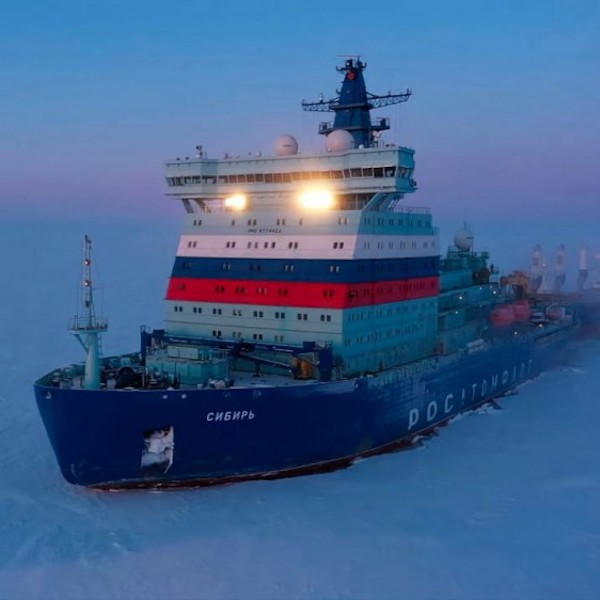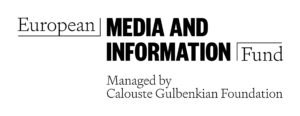🇷🇺 Moscow pares back ice-breaker ambitions
Two days after the EU imposed sanctions against Russia’s state nuclear icebreaker operator, Moscow announced it was dropping construction of its fleet of “Lider”-class vessels

By Atle Staalesen
An updated version of Russia’s Arctic Strategy states that Russia will only build one Lider-class ice-breaker, not three as originally planned. The amended document signed by President Vladimir Putin on 27 February states that only the lead ship of the new class will be built before 2035.
The lead ship, Rossiya, is currently under construction at the Zvezda yard in the Russian Far East. It is due to be ready for service in 2027.
Lider-class vessels (project 20510) are to be equipped with two RITM-400-type nuclear reactors and have a total capacity of 120 MW, twice the power of the most powerful icebreakers currently in service. It will be able to crush ice thicker than four metres.
The vessel is very complicated to build, and it comes at an extraordinarily high price. The Russian government in January 2020 allocated 127 billion rubles (€1.85 billion) for the construction of the lead ship.
The reduction of the number of Liders is compensated by the construction of more LK-60 icebreakers. While the original strategy document from 2020 includes the construction of “no less than five” icebreakers of the 22220 class, the updated documents calls for “no less than seven” vessels of the kind.
Russia already has three ships of the class in operation; the Arktika, Sibir and Ural. By 2035, three more — the Yakutia, Chukotka, Kamchatka and Primorie — are due to be completed.
The strategy also outlines the construction of 30 rescue and support ships, as well as three hydrographic survey ships and two piloting ships by 2030.
The updated document comes only two days after the European Commission adopted its 10th package of sanctions against Russia, imposed in retaliation for Moscow’s unprovoked war against Ukraine. The most recent sanctions are partly aimed at Atomflot, the nuclear icebreaker operator.
According to the commission, the sanctions against Atomflot will reduce Russia’s ability to take use of the Northern Sea Route to exploit its vast Arctic oil and gas reserves.
“With oil and gas exports shifting from Europe to Asia as a result of Russia’s war of aggression against Ukraine and subsequent Western sanctions, Russia’s icebreaker fleet is key to the country’s Arctic hydrocarbon strategy. In order to escort oil and gas tankers on the much longer and more challenging voyage from the Yamal and Gydan peninsulas to Asia, rather than the much shorter and less ice infested route to Europe, Russia relies on Atomflot’s fleet of nuclear icebreakers,” the commission said.
Mr Putin has had the development of the Northern Sea Route as one of his key priorities since 2018, and federal agencies have been commissioned to reach 80 million tons of goods per year on the route by 2024.
The lion’s share of the projected traffic is oil, liquified natural gas and coal.
Located in Kirkenes, Norway, just a few kilometres from the borders to Russia and Finland, the Barents Observer is dedicated to cross-border journalism in Scandinavia, Russia and the wider Arctic. As a non-profit stock company that is fully own by its reporters, its editoral decisions are free of regional, national or private-sector influence. It has been a partner to ABJ and its predecessors since 2016.
This article has been fact-checked by Arctic Business Journal and Polar Research and Policy Initiative, with the support of the EMIF managed by the Calouste Gulbenkian Foundation.

Disclaimer: The sole responsibility for any content supported by the European Media and Information Fund lies with the author(s) and it may not necessarily reflect the positions of the EMIF and the Fund Partners, the Calouste Gulbenkian Foundation and the European University Institute.